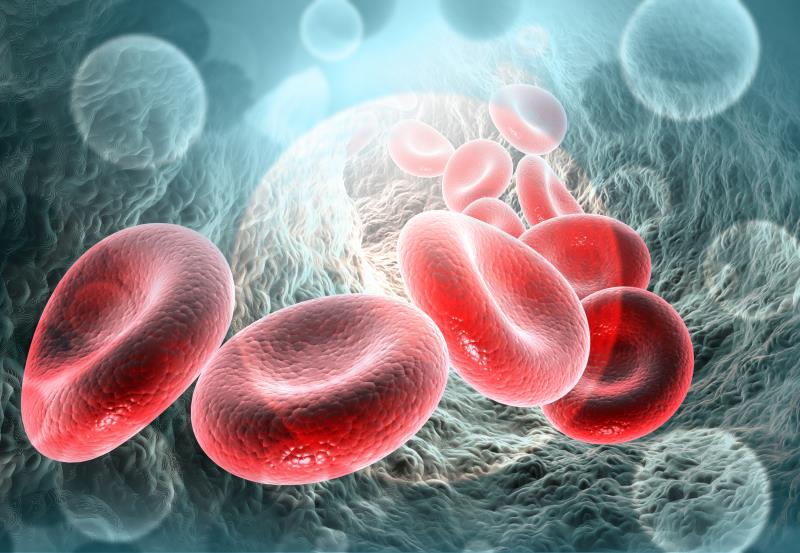Two trials presented at ISTH 2020 attest to the safety and efficacy of the bispecific monoclonal antibody emicizumab as a prophylactic agent in people with haemophilia A (PwHA) with factor VIII (FVIII) inhibitors.
HAVEN 5: with vs without emicizumab prophylaxis
Seventy PwHA with or without FVIII inhibitors (median age 29 years) from the Asia-Pacific region were randomized 2:2:1 to receive SC emicizumab prophylaxis either at a dose of 1.5 mg/kg QW or 6 mg/kg Q4W (3 mg/kg QW loading dose for the first 4 weeks), or no prophylaxis, for 24 weeks. [ISTH 2020, abstract PB0957]
Annualized bleed rates (ABRs) for treated bleeds significantly dropped with both emicizumab doses vs no prophylaxis (1 [both doses] vs 27; p<0.0001 for both). More emicizumab recipients had zero bleeds (n=19 and 15 for the QW and the Q4W regimens, respectively); the zero-bleed status was achieved by only one participant in the no-prophylaxis arm.
Emicizumab was well-tolerated, with no deaths, thrombotic microangiopathies, or thrombotic events reported. The most common drug-related adverse events (AEs) were URTI and injection-site reactions (ISRs). Of the eight participants who developed treatment-induced antidrug antibodies, only one had transient neutralizing potential.
“[These findings show that] emicizumab QW or Q4W prophylaxis offers a highly efficacious, well-tolerated, flexible option for PwHA in the Asia-Pacific region,” said the researchers.
STASEY: emicizumab safety, tolerability
In this trial, investigators evaluated the safety and tolerability of emicizumab in 193 PwHA with FVIII inhibitors (median age 28 years). Emicizumab was given at a dose of 3 mg/kg QW for 4 weeks then 1.5 mg/kg QW for the remainder of the 2-year treatment period. [ISTH 2020, abstract PB0958]
Only two AEs of interest were identified, which were both classified as thromboembolic events* (TEs). No thrombotic microangiopathy or other arteriovenous TEs were noted despite the use of activated prothrombin complex concentrate (n=3) and recombinant FVIIa (n=32).
While most (75 percent) experienced ≥1 AE, only 17 percent were drug-related. Serious and grade ≥3 AE rates were relatively low (n=19 and 22, respectively), as were the rates of AEs leading to treatment withdrawal and dose modification/interruption (n=1 and 3, respectively). The most common AEs were nasopharyngitis, headache, and ISRs.
Ten participants developed antidrug antibodies, but none had neutralizing potential, and all continued emicizumab with no increased bleeding.
Moreover, ABRs for all and treated bleeds were low (mean, 1.3 and 0.5, respectively).
“[In STASEY,] no new safety signals were identified … [Our findings] confirm the safety results from the HAVEN clinical programme,” said the investigators.
Surgical setting
Two-thirds (n=20) of the 31 minor surgeries performed in STASEY were managed without a prophylactic coagulation factor; three of which were treated postoperatively for bleeds. Only one of the 11 cases managed with a prophylactic coagulation factor required postoperative treatment for bleeds. [ISTH 2020, abstract PB0939]
Eight of the nine major surgeries performed were managed with a prophylactic coagulation factor, resulting in four treated postoperative bleeds and two untreated bleeds. There were no resultant bleeds in the other two major surgical cases.
“[These results indicate that] most minor procedures were performed without prophylactic coagulation factor and did not result in postoperative treated bleeds. Major surgeries were safely performed with additional coagulation prophylaxis,” added the researchers.
*ST-elevation myocardial infarction (unrelated to study drug) and a hypertrophic clot following tooth extraction in a participant receiving multiple doses of antifibrinolytic plus recombinant FVIIa






